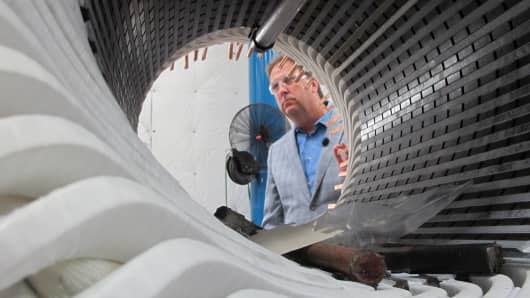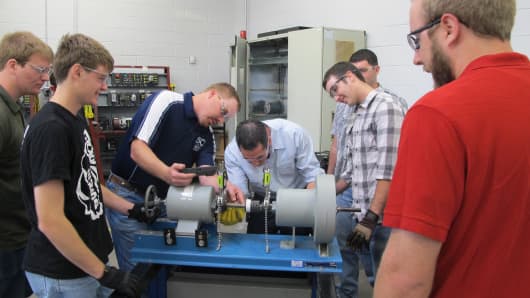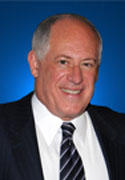The following is the text of a letter written by a number of scientists asking for a federal investigation of climate science denial under the RICO statute.
Letter to President Obama, Attorney General Lynch, and OSTP Director Holdren
September 1, 2015
Dear President Obama, Attorney General Lynch, and OSTP Director Holdren,
As you know, an overwhelming majority of climate scientists are convinced about the potentially serious adverse effects of human-induced climate change on human health, agriculture, and biodiversity. We applaud your efforts to regulate emissions and the other steps you are taking. Nonetheless, as climate scientists we are exceedingly concerned that America’s response to climate change – indeed, the world’s response to climate change – is insufficient. The risks posed by climate change, including increasing extreme weather events, rising sea levels, and increasing ocean acidity – and potential strategies for addressing them – are detailed in the Third National Climate Assessment (2014), Climate Change Impacts in the United States. The stability of the Earth’s climate over the past ten thousand years contributed to the growth of agriculture and therefore, a thriving human civilization. We are now at high risk of seriously destabilizing the Earth’s climate and irreparably harming people around the world, especially the world’s poorest people.
We appreciate that you are making aggressive and imaginative use of the limited tools available to you in the face of a recalcitrant Congress. One additional tool – recently proposed by Senator Sheldon Whitehouse – is a RICO (Racketeer Influenced and Corrupt Organizations Act) investigation of corporations and other organizations that have knowingly deceived the American people about the risks of climate change, as a means to forestall America’s response to climate change. The actions of these organizations have been extensively documented in peerreviewed academic research (Brulle, 2013) and in recent books including: Doubt is their Product (Michaels, 2008), Climate Cover-Up (Hoggan & Littlemore, 2009), Merchants of Doubt (Oreskes & Conway, 2010), The Climate War (Pooley, 2010), and in The Climate Deception Dossiers (Union of Concerned Scientists, 2015). We strongly endorse Senator Whitehouse’s call for a RICO investigation.
The methods of these organizations are quite similar to those used earlier by the tobacco industry. A RICO investigation (1999 to 2006) played an important role in stopping the tobacco industry from continuing to deceive the American people about the dangers of smoking. If corporations in the fossil fuel industry and their supporters are guilty of the misdeeds that have been documented in books and journal articles, it is imperative that these misdeeds be stopped as soon as possible so that America and the world can get on with the critically important business of finding effective ways to restabilize the Earth’s climate, before even more lasting damage is done.
Sincerely,
Jagadish Shukla, George Mason University, Fairfax, VA
Edward Maibach, George Mason University, Fairfax, VA
Paul Dirmeyer, George Mason University, Fairfax, VA
Barry Klinger, George Mason University, Fairfax, VA
Paul Schopf, George Mason University, Fairfax, VA
David Straus, George Mason University, Fairfax, VA
Edward Sarachik, University of Washington, Seattle, WA
Michael Wallace, University of Washington, Seattle, WA
Alan Robock, Rutgers University, New Brunswick, NJ
Eugenia Kalnay, University of Maryland, College Park, MD
William Lau, University of Maryland, College Park, MD
Kevin Trenberth, National Center for Atmospheric Research, Boulder, CO
T.N. Krishnamurti, Florida State University, Tallahassee, FL
Vasu Misra, Florida State University, Tallahassee, FL
Ben Kirtman, University of Miami, Miami, FL
Robert Dickinson, University of Texas, Austin, TX
Michela Biasutti, Earth Institute, Columbia University, New York, NY
Mark Cane, Columbia University, New York, NY
Lisa Goddard, Earth Institute, Columbia University, New York, NY
Alan Betts, Atmospheric Research, Pittsford, VT
Above is from: BruceS — RICO for climate deniers










